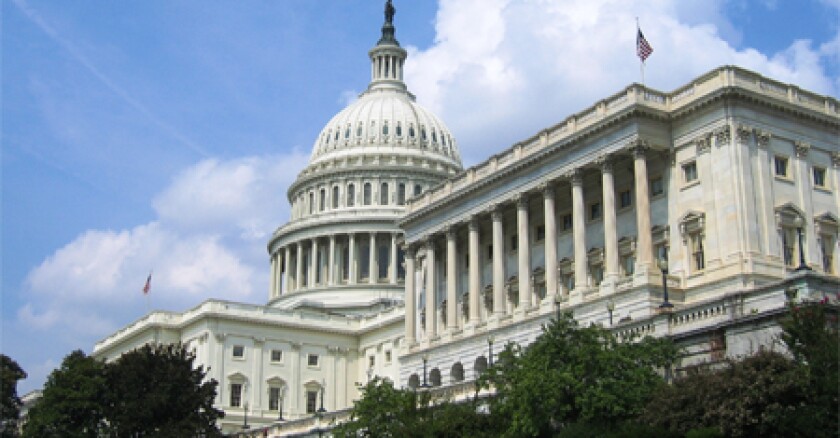Science
New Federal Tax Bill Threatens Connecticut Education Funding

Connecticut’s education system faces significant challenges following the enactment of President Donald Trump’s expansive tax and spending bill, which was signed into law in early July 2023. This nearly 900-page legislation introduces sweeping changes that could profoundly affect K-12 and higher education funding in the state, from school meal programs to student loan repayment options. Education experts express concern that the new law will exacerbate existing funding issues at Connecticut schools.
Steven Hernandez, executive director of ConnCAN, a statewide education advocacy group, described the situation as a “high-level emergency.” The bill’s implications extend across various educational dimensions, highlighting five critical areas of impact.
Introduction of School Voucher Program
One of the most notable aspects of the new legislation is the establishment of the nation’s first federal school voucher program. This controversial initiative creates a $1,700 tax credit for donations made to organizations that provide scholarships for K-12 students attending private schools. Preston Green, an education professor at the University of Connecticut, noted this marks the first time the federal government has introduced such a program.
While supporters argue that this initiative enhances educational choices, critics contend it diverts essential funding away from public schools. Kate Dias, president of the Connecticut Education Association, emphasized the importance of public education, stating, “Taxpayer dollars should support public schools that are open to all students — not private institutions that can select whom they serve.”
States have the option to participate in this program, raising questions about Connecticut’s potential involvement. Green cautioned that this could lead to larger voucher programs that might disproportionately affect rural districts and public schools already facing funding difficulties.
Changes to Student Loan Repayment
The new law also significantly alters student loan repayment options, replacing existing plans with two simplified choices: a standard plan and an income-based repayment plan. According to U.S. Rep. Jahana Hayes, the changes could increase monthly payments for borrowers by nearly $200. The legislation eliminates many protections for those experiencing financial difficulties and repeals several initiatives from the previous administration, including the income-driven Saving on a Valuable Education (SAVE) Plan.
This shift will impact over 80,000 borrowers in Connecticut, with the Student Borrower Protection Center estimating that restarting interest accrual will cost these borrowers approximately $297 monthly, totaling around $3,566 annually. Additionally, the law caps Graduate PLUS loan limits and modifies the Pell Grant program, which is crucial for many low-income students.
Impact on School Nutrition Programs
Another critical concern highlighted by education advocates is the reduction in funding for the Supplemental Nutrition Assistance Program (SNAP). This program is vital for families struggling to afford groceries and plays a significant role in ensuring children receive free meals at school. The legislation’s restrictions could lead to fewer children qualifying for free meals, impacting their ability to learn effectively.
Dias warned that children facing hunger or medical issues are not prepared to succeed in school. The cuts to SNAP and Medicaid could result in heavier costs for Connecticut as the state must decide whether to continue funding these programs or cut back, posing a serious threat to educational resources.
Medicaid Cuts and Their Consequences
The law’s significant cuts to Medicaid further strain school district budgets. Medicaid serves as a crucial funding source for school-based healthcare, covering services like nursing and counseling. A nationwide survey indicated that 80 percent of school district leaders expect reductions in health staff and services due to expected Medicaid cuts.
With more than 366,000 children in Connecticut relying on Medicaid for healthcare, Hernandez expressed concern about the long-term effects on student learning and well-being.
Increased Taxes on University Endowments
Finally, the legislation introduces a tax increase on university endowments, specifically targeting wealthy institutions. Yale University, with a $41.4 billion endowment, faces an estimated cost of $280 million in the first year due to the endowment tax increase from 1.4 percent to 8 percent. Other institutions, such as Wesleyan University, will also see new taxes imposed.
University officials at Yale are already responding by implementing hiring freezes and considering further cost-cutting measures. National education organizations have voiced opposition to these new taxes, citing potential negative impacts on the quality of academic services and financial aid availability.
The passage of this extensive legislation presents numerous challenges for Connecticut’s education landscape, raising concerns about the future of public education, student support services, and overall educational access. As the state grapples with these changes, education advocates urge policymakers to consider the long-term implications for students and families.
-

 Health3 months ago
Health3 months agoNeurologist Warns Excessive Use of Supplements Can Harm Brain
-

 Health3 months ago
Health3 months agoFiona Phillips’ Husband Shares Heartfelt Update on Her Alzheimer’s Journey
-

 Science2 months ago
Science2 months agoBrian Cox Addresses Claims of Alien Probe in 3I/ATLAS Discovery
-

 Science2 months ago
Science2 months agoNASA Investigates Unusual Comet 3I/ATLAS; New Findings Emerge
-

 Science1 month ago
Science1 month agoScientists Examine 3I/ATLAS: Alien Artifact or Cosmic Oddity?
-

 Entertainment5 months ago
Entertainment5 months agoKerry Katona Discusses Future Baby Plans and Brian McFadden’s Wedding
-

 Science1 month ago
Science1 month agoNASA Investigates Speedy Object 3I/ATLAS, Sparking Speculation
-

 Entertainment4 months ago
Entertainment4 months agoEmmerdale Faces Tension as Dylan and April’s Lives Hang in the Balance
-

 World3 months ago
World3 months agoCole Palmer’s Cryptic Message to Kobbie Mainoo Following Loan Talks
-

 Science1 month ago
Science1 month agoNASA Scientists Explore Origins of 3I/ATLAS, a Fast-Moving Visitor
-

 Entertainment2 months ago
Entertainment2 months agoLewis Cope Addresses Accusations of Dance Training Advantage
-

 Entertainment3 months ago
Entertainment3 months agoMajor Cast Changes at Coronation Street: Exits and Returns in 2025









